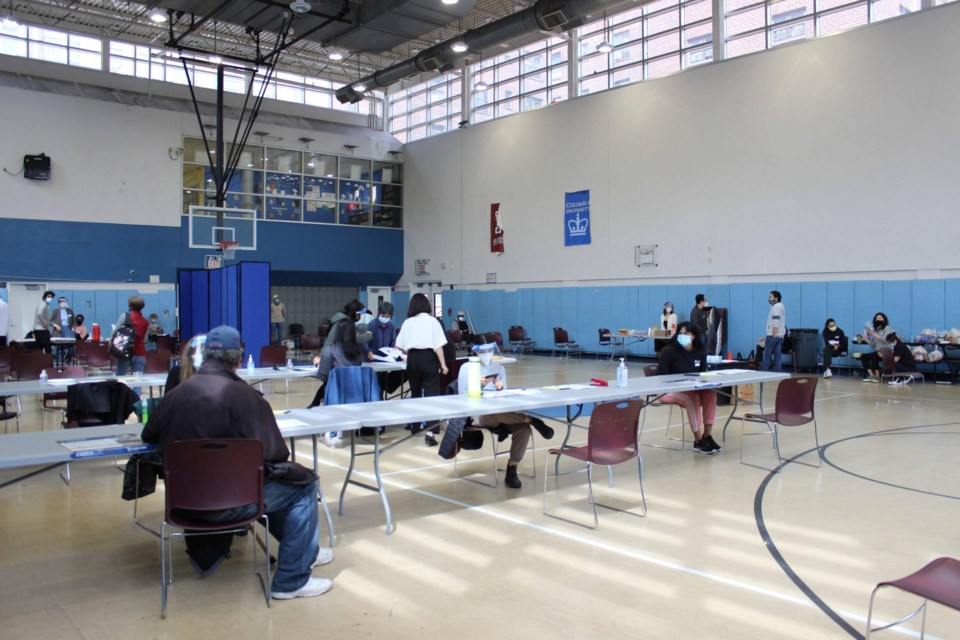Following two months of low transmission rates, New York City’s Health Department is officially declaring the mpox outbreak over.
“New York City took bold action early and throughout this outbreak, and together helped turn the tide and mobilize the nation,” said health commissioner Ashwin Vasan.
“The end of the mpox outbreak is a moment of pride for us in public health, and represents the best of science and society coming together for quick action.”
The declaration was made on Feb. 1, one day after the federal public health emergency lapsed on Jan. 31.
New York City has been an epicenter of the mpox outbreak since early 2022. The health department’s mpox data report on the 2022 outbreak indicates that from May 19, through Dec. 31, there were 3,821 mpox cases in the city.
Mpox case numbers then fell from 70 cases per day to a seven-day average of zero cases through January.
Vaccine distribution
The end of the outbreak comes after a rigorous citywide vaccination and outreach campaign.
“Our city vaccinated more than 100,000 people and was the first in the nation to pilot effective strategies, driving both public awareness and official response strategies,” said Vasan.
Over the course of the 2022 outbreak, more than 155,000 doses of the mpox vaccine were administered in New York City alone. This number exceeded the amount administered in 49 U.S. states. Only California administered more followed by New York City and then the state of Florida.
“When mpox began spreading in New York City, the city and its public hospital system mobilized its facilities and launched a mobile vaccination fleet to bring the vaccine to all New Yorkers without exception,” said Andrew Wallach, ambulatory care chief medical officer at NYC Health + Hospitals.
Between June and December, New York City’s mpox community engagement team participated in nearly 600 events, engaging with nearly 50,000 individuals about mpox.
Community-guided mobile clinics were established at LGBTQ+-centered events, including parties with close physical or sexual contact and high risk of mpox transmission, vaccinating as many as 40% to 60% of event attendees.
“Our community vaccine hubs and mobile vaccine clinics have met people where they are, as they are, removing barriers to ensure those who identify as members of the LGBTQ+ communities receive the full protection of the vaccine and the culturally-responsive, gender-affirming care they deserve,” said Wallach.
These sites ensured mpox vaccines were available at accessible locations for New Yorkers most at risk of exposure. As well as sites that welcome sex workers and patients with HIV.
"It's our hope that the community health infrastructure created to leverage resources targeted toward the LGBTQ+ community is sustained to ensure continued investment in affirming sexual/health care," said Anthony Fortenberry, chief nursing officer at Callen-Lorde Community Health Center.
Post-outbreak care
Although the outbreak is over, healthcare officials warn that mpox transmission continues to occur at a low level.
Testing and treatment is available at the state’s 11 acute ambulatory clinics and five PRIDE Health Centers, co-located at Metropolitan, Bellevue, Lincoln, Woodhull and Jacobi hospitals, as well as the East New York, Gouverneur, Judson and Vanderbilt Gotham Health facilities.
Anyone showing signs of mpox should visit their healthcare provider. Those without a healthcare provider can call 311. New Yorkers can also visit the NYC Health Map to find a nearby provider.
Care is available in New York City regardless of immigration status, insurance coverage or ability to pay. The mpox vaccine is available by appointment. For more information, click here.




